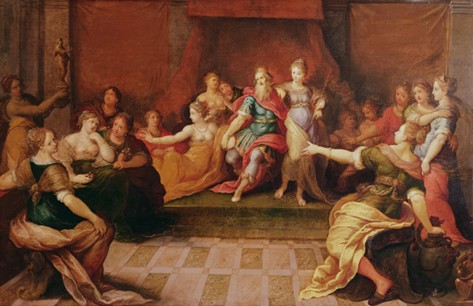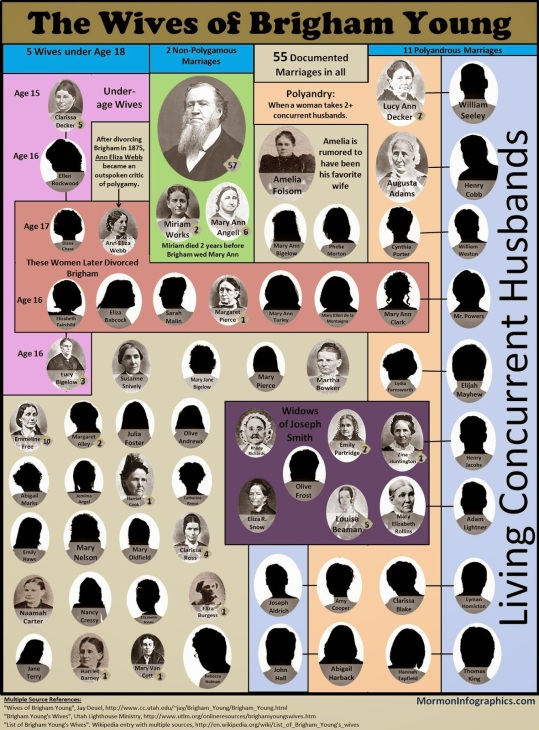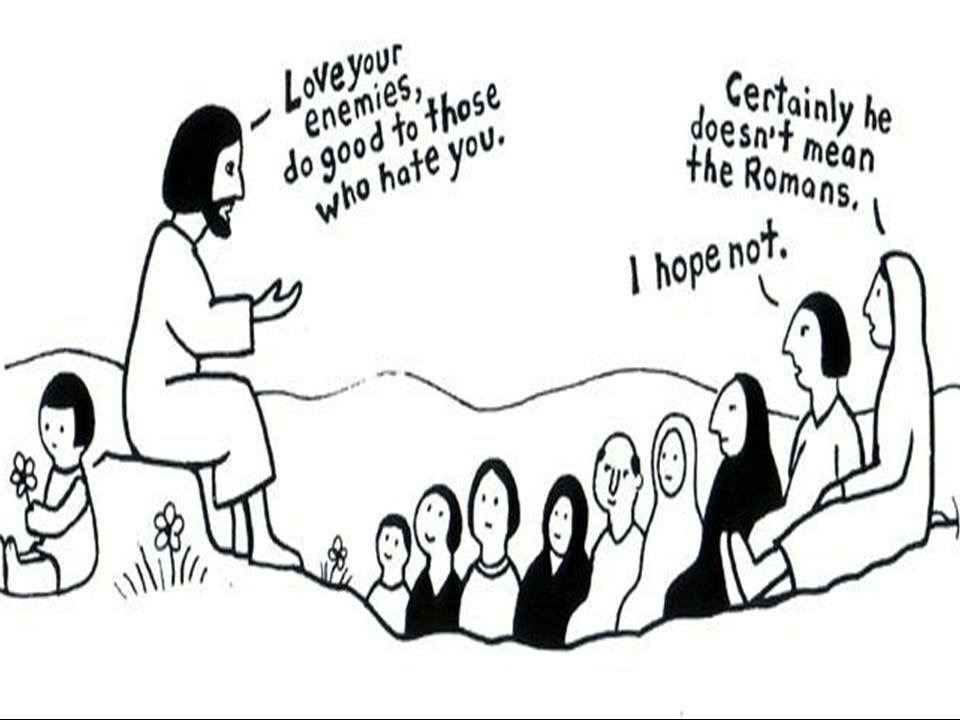Darius Gray has inspired me to embrace the full truth, not just the convenient truth. I look to the past not to find fault, but to learn lessons that should inform us to be better today. With that said, I have found many important lessons from the 1947 correspondence between Lowry Nelson and the First Presidency of The Church of Jesus Christ of Latter-day Saints. I consider it a prequel, of sorts, to Greg Prince's "David O. McKay and the Rise of Modern Mormonism." I find in Lowry Nelson an example of someone who followed his conscience to seek and to speak truth, even though the leaders he sustained at the time weren't ready for the truth. Please consider the magnitude of this ordeal and the fact that he actually was right and they were wrong. Perhaps we can all learn to be more humble about what we "know" to be true, and speak the truth in love:
In the Direction of His Dreams
Memoirs of Lowry Nelson
Ch. 16 (pp. 334 through 349)
Again The Church And I
The disturbing letter came from Heber Meeks, an old friend of my college days at Logan. Heber was now president of the Southern States Mission of the Mormon Church, with headquarters in Atlanta. He informed me that he had been in Cuba on instructions of the First Presidency to investigate the possibility of doing missionary work there. In Havana, he had met Chester Young, a friend of mine, who informed him that I had spent a year studying rural life in Cuba. Heber went on to say:
I would appreciate your opinion as to the advisability of doing missionary work particularly in the rural sections of Cuba, knowing, of course, our concept of the Negro and his position as the Priesthood.
Are there groups of pure white blood in the rural sections, particularly in the small communities? If so, are they maintaining segregation from the Negroes? The best information we received was that in the rural communities there was no segregation of the races and it would probably be difficult to find, with any degree of certainty, groups of pure white people.
I would also like your reaction as to what progress you think the Church might be able to make in doing missionary work in Cuba in view of, particularly in the rural section, the ignorance and superstition of the people and their being so steeped in Catholicism. Do you think our message would have any appeal to them?
I was stunned. My reply to Heber, dated June 26, 1947, in part, was as follows:
The attitude of the Church in regard to the Negro makes me very sad. Your letter is the first intimation I have had that there was a fixed doctrine on this point. I had always known that certain statements had been made by authorities regarding the status of the Negro, but I had never assumed that they constituted an irrevocable doctrine. I hope no final word has been said on this matter. I must say that I have never been able to accept the idea, and never shall. I do not believe that God is a racist. But if the Church has taken an irrevocable stand, I would dislike to see it enter Cuba or any other island where difference races live and establish missionary work. The white and colored people get along much better in the Caribbean and most of Latin America than they do in the United States. Prejudice exists, there is no doubt, and the whites in many ways manifest their feelings of superiority, but there is much less of it than one finds in the U.S.A, especially in our South. For us to go into a situation like that and preach a doctrine of “white supremacy” would, it seems to me, be a tragic disservice. I am speaking frankly, because I feel very keenly on this question. If world brotherhood and the universal-God idea mean anything, it seems to me they mean equality of races. I fail to see how Mormonism or any other religion claiming to be more than a provincial church can take any other point of view; and there cannot be world peace until the pernicious doctrine of the superiority of one race and the inferiority of others is rooted out. This is my belief.
The Methodists, Presbyterians, and Baptists have, as you know, done a great deal of missionary work in the island, and have rendered Cuba a great service in maintaining schools, hospitals, etc.; however, they have limited their work largely to the urban centers. There is a great service to be rendered rural Cubans if the right approach were made. Mormonism is well adapted to render such service with its system of lay leadership and many activity programs. Many rural Cubans have nothing in the way of organized social life. To them, the family is the basic institution, and beyond it the neighborhood. Our Church would provide them with something very sorely needed. It would develop leadership among them, provide them with hope and aspiration, give them a feeling of importance as individuals which they have never had. They have been exploited by priest and politician; they have been led to believe that the government is not any of their responsibility and that the Church is the business of the priest and the bishop. While there is a great deal of individuals among them, they have definite and discernible feelings of inferiority when it comes to matters of leadership.
I am talking about the white people now; the rural people are predominantly white. That is, they are as white as Mediterranean peoples are—Spanish, Italians, etc—who have been in contact with “color” for centuries. There are no pure races; on this anthropologist are in general agreement. Of course, this does not mean that Negro blood exits throughout the white race or vice versa. There is grave doubt, however, as to the purity of the Nordic, Mediterranean, or even the Negro. Because I think our system of religious organization could serve the rural Cuban people as no other system could, I am sad to have to write you and say, for what my opinion is worth, that it would be better for the Cubans if we did not enter their island—unless we are willing to revise our racial theory. To teach them the pernicious doctrine of segregation and inequalities among races where it does not exist, or to lend religious sanction to it where it has raised its ugly head, would, it seems to me, be tragic. It seems to me we just fought a war over such ideas.
I repeat, my frankness or bluntness, as you will, is born of a fervent desire to see the causes of war rooted out of the hearts of men. What limited study I have been able to give the subject leads me to the conclusion that ethnocentrism, and the smugness and intolerance which accompany it, is one of the first evils to be attacked if we are to achieve the goal of peace.
On the same date, June 26, [1947] I wrote President George Albert Smith of the Mormon Church as follows:
Dear President Smith:
I am in receipt today of a letter from President Heber Meeks, an old school friend, copy of which I am enclosing together with a copy of my reply. It is self-explanatory.
Perhaps I am out of order, so to speak, in expressing myself as I have. I have done so out of strong conviction on the subject, and with the added impression that there is no irrevocable Church doctrine on this subject. I am aware of statements and impressions which have been passed down, but I had never been brought face to face with the possibility that the doctrine was finally crystallized. I devoutly hope that such crystallization has not taken place. The many good friends of mixed blood—through no fault of theirs incidentally—which I have in the Caribbean and who know me to be a Mormon would be shocked indeed if I were to tell them my Church relegated them to an inferior status.
As I told Heber, there is no doubt in my mind that our Church could perform a great service in Cuba, particularly in the rural areas, but it would be far better that we not go in at all, than to go in and promote racial distinction.
I wanted you to know my feelings on this question and trust you will understand the spirit in which I say these things. I want to see us promote love and harmony among peoples of the earth.I was shortly informed by Joseph Anderson, secretary to the First Presidency, that I had failed to enclose a copy of my letter to Heber Meeks. This I promptly supplied, and in due time received the following reply, dated July 17:
Dr. Lowry Nelson
Utah State Agricultural College
Logan, Utah
Dear Brother Nelson:
As you have been advised, your letter of June 26 was received in due course, and likewise we now have a copy of your letter to President Meeks. We have carefully considered their contents, and are glad to advise you as follows:
We make this initial remark: the social side of the Restored Gospel is only an incident of it; it is not the end thereof.
The basic element of your ideas and concepts seems to be that all God’s children stand in equal positions before Him in all things.
Your knowledge of the Gospel will indicate to you that this is contrary to the very fundamentals of God’s dealings with Israel dating from the time of His promise to Abraham regarding Abraham’s seed and their position vis-à-vis God Himself. Indeed, some of God’s children were assigned to superior positions before the world was formed. We are aware that some Higher Critics do not accept this, but the Church does.
Your position seems to lose sight of the revelations of the Lord touching the preexistence of our spirits, the rebellion in heaven, and the doctrines that our birth into this life and the advantages under which we may be born have relationship in the life heretofore.
From the days of the Prophet Joseph even until now, it has been the doctrine of the Church, never questioned by any of the Church Leaders, that the Negroes are not entitled to the full blessings of the Gospel.
Furthermore, your ideas, as we understand them, appear to contemplate the intermarriage of the Negro and White races, a concept which has heretofore been most repugnant to most normal-minded people from the ancient patriarchs till now. God’s rule for Israel, His Chosen People, has been endogamous. Modern Israel has been similarly directed.
We are not unmindful of the fact that there is a growing tendency, particularly among some educators, as it manifests itself in this area, toward the breaking down of race barriers in the matter of intermarriage between whites and blacks, but it does not have the sanction of the church and is contrary to Church doctrine.
Faithfully yours,
(signed) Geo. Albert Smith
J. Reuben Clark, Jr.
David O. McKay
The First Presidency
There is no doubt in my mind that he drafted this letter to me. A lawyer by profession, he had spent most of his career in political positions in Washington: Undersecretary of State in the Harding-Coolidge era and Ambassador to Mexico under Hoover. It was while he was ambassador that he was named a Counselor to President Grant. However, he continued to spend most of his time in New York with the Foreign Bondholders Association until the 1930s.
But the draftsman is only incidental. This was the law and the gospel on the subject. One revealing paragraph put words in my mouth that seem to favor intermarriage. This was gratuitous and I resented it, although I did not put my feeling in writing. It reveals the fear, as expressed by Southern whites, of “mongrelization.” It was probably a basic factor in the continuation of the policy.
My reply, dated October 8, was a long one:
University of Minnesota
Department of Agriculture
University Farm, St. Paul 1
October 8, 1947
The First Presidency
Church of Jesus Christ of Latter-Day Saints
47 East South Temple
Salt Lake City, Utah
Dear Brethren:
Your letter of July 17th sent to me at Logan was forwarded here, but I had already left for Europe and so did not get it until I returned to my office September 8. I want to thank you for it, and the attention you gave me. The letter is, however, a disappointment to me, as you may surmise it would be from what I said in my letter to President Meeks.
It seems strange to me in retrospect—as it must have seemed to you—that I should have never before had to face up to this doctrine of the Church relative to the Negro. I remember that it was discussed from time to time during my boyhood and youth, Priesthood meetings or elsewhere in Church classes; and always someone would say something about the Negroes “sitting on the fence” during the Council in Heaven. They did not take a stand, it was said. Somehow there was never any very strong conviction manifest regarding the doctrine, perhaps because the question was rather an academic one to us in Ferron, where there were very few people who had ever seen a Negro, let alone having lived in the same community with them. So the doctrine was always passed over rather lightly I should say, with no Scripture ever being quoted or referred to regarding the matter, except perhaps to refer to the curse of Cain, or of Ham and Canaan. (I went back and re-read the latter the other evening. It was difficult to find any element of justice in Noah’s behavior toward Ham, since the latter merely reported to his brothers that his father was lying there in a drunken state and in a nude condition., and the other boys put a cover over him. Because Ham reported his father’s condition, he was cursed.)
But anyway, I really had never come face to face with the issue until this summer. In the meantime, since my youth, I have chosen to spend my professional career in the field of the social sciences, the general purpose of which is to describe and understand human behavior. I probably should have had less difficulty with some of these problems—such as the race problem—had I remained in agronomy and chemistry, my undergraduate fields of specialization. Be that as it may, my experience has been what it has been. As a sociologist, I have sincerely tried, and am still trying, to understand human social relations: the varied forms of organization, the process of conflict, cooperation, competition, assimilation, why peoples and cultures differ form one another, etc.
As one studies the history and characteristics of human societies, one comes to recognize certain basic principles. One of these is social change. Any given society over the years undergoes changes. It is forever in a state of flux. Some scholars have regarded such changes as progress, and have even considered that progress is inevitable. Others chart the rise and fall of civilizations and think in terms of cyclical change. Others express still different hypotheses, but none of them considers society as a static entity.
Another principle which stands out as one studies the development of cultures is the tendency of institutions to resist change. Although they are established, or grow up, originally as means to the end of satisfying the ends in themselves. It seems to me that Jesus was trying to get this point over to the society of his day, when he spoke of putting new wine in old bottles, and that the Sabbath was made for man and not man for the Sabbath. This was an affront to the legalism of the Pharisees, and others of similar outlook, and of course the institutions had to be protected even at the cost of His crucifixion.
Another principle that has come to occupy a central position in the analysis of human behavior is that of ethnocentrism. As defined by William Graham Sumner, who first developed the concept, it refers to the “view of things in which one’s own group is the center of everything and all others are sealed and rated with reference to it.” (The Folkways, p. 13.) Insofar as the “out-group” differs from the “in-group” it is regarded as inferior by the latter. A people with a different skin color would be automatically assigned to an inferior status. A language different from that of the in-group is, of course, an “inferior” one; and so on. This tendency is common to all groups.
Now, what does this add up to in my thinking? It means that (1) if one accepts the principle of cultural or social change and applies it to the Hebrews, the Old Testament history of the group is interpreted accordingly. In their early stages of development they had beliefs and practices, many of which were subsequently supplanted by other ideas. Jehovah to the Hebrews of the Pentateuch was essentially a tribal deity. It was not until Amos that the idea of a universal God was proclaimed. And the concept of God as Love was an essential contribution of the mission of the Savior. (2) This, to me, represents “progressive revelation.” It seems to me that we still have much to learn about God, and some of our earlier notions of Him may yet undergo modification. (3) The early Hebrew notion of the colored people with whom they had contact in the Mediterranean basin was, quite naturally that those people were inferior to themselves, a consequence of their extreme ethnocentrism.
Why did they not have something to say about the Japanese or Chinese or the American Indian? To me the answer is that they did not know these groups existed. But one can be pretty certain that if they had known about them, they would have developed some similar explanation regarding their origin to that concerning the Negro, and would have assigned them also to a position less exalted than their own.
(4) And once these things got written down—institutionalized—they assume an aura of the sacred. I refer in this respect not only to the Scripture, but to more secular documents as well—the Constitution of the United States, for instance, which many people do not want to change regardless of the apparent needs. So we are in the position, it seems to me, of accepting a doctrine regarding the Negro which was enunciated by the Hebrews during a very early stage in their development. Moreover, and this is the important matter to me, it does not square with what seems an acceptable standard of justice today; nor with the letter or spirit of the teachings of Jesus Christ. I cannot find any support for such a doctrine of inequality in His recorded sayings.
I am deeply troubled. Having decided through earnest study that one of the chief causes of war is the existence of ethnocentrism among the peoples of the world; that war is our major social evil which threatens to send all of us to destruction, and that we can ameliorate these feelings of ethnocentrism by promoting understanding of one people by others, I am now confronted with this doctrine of my own church which says in effect that white supremacy is part of God’s plan for His children, that the Negro has been assigned by Him to be a hewer of wood and drawer of water for his white-skinned brethren. This makes us nominal allies of the Rankins and the Bilbos of Mississippi, a quite unhappy alliance for me, I assure you.
This doctrine pressed to its logical conclusion would say that Dr. George Washington Carver, the late eminent and saintly Negro scientist, is by virtue of the color of his skin inferior to the least admirable white person, not because of the virtues he may or may not possess, but because—through no fault of his—there is a dark pigment in his skin. All of the people in India—who are not Negroes according to ethnological authority, but are Aryan—would presumably come under the Negro classification. I think of the intelligent, high-minded, clean-living Hindu who was a member of the International Committee over which I had the honor to preside at Geneva from August 4 to 10, this year. He drank not, smoked not, his ethical standards were such that you and I could applaud him. Where should he rank vis-à-vis the least reliable and least admirable white person in Ferron? Or I could name you a real Negro with equal qualifications.
Now, you say that the “social side of the Restored Gospel is only an incident of it; it is not the end thereof.” I may not have the same concept of “social” as you had in mind, but it seems to me the only virtue we can recognize in men is that expressed in their relations with others; that is, their “social” relations. Are the virtues of honesty, chastity, humility, forgiveness, tolerance, love, kindness, justice secondary? If so, what is primary? Love of God? Very Well. But the second (law) is like unto it.
I must beg your forgiveness for this intrusion upon your time. I realize that I am only one among hundreds of thousands with whom you have to be concerned. My little troubles I must try to work out myself. But I desire to be understood. That’s why I have gone to such length to set down here the steps in my thinking. I am trying to be honest with myself and with others. I am trying to find my way in what is a very confused world. After seeing the devastation of Europe this summer, I am appalled by the sight of it, and the contemplation of what mankind can collectively do to himself unless somehow we, collectively—the human family—can put love of each other above hatred and somehow come to a mutual respect based upon understanding and a recognition that others, although they may be different from us, are not by that fact alone inferior. Are we becoming so legalistic (after the fashion of the Pharisees) that we cannot adjust our institutions to the changing need of mankind? Are we, as some have charged, more Hebraic than Christian?
Sincerely your brother,
(signed) Lowry Nelson, Professor of Sociology LN:ed
Dr. Lowry Nelson
University of Minnesota
Department of Agriculture
University Farm
St. Paul 1, Minnesota
November 12, 1947
Dear Brother Nelson:
We have your letter of October 8 in further development of the matter discussed in your earlier letter.
We feel very sure that you understand well the doctrines of the Church. They are either true or not true. Our testimony is that they are true. Under these circumstances we may not permit ourselves to be too much impressed by the reasonings of men however well-founded they may seem to be. We should like to say this to you in all kindness and in all sincerity that you are too fine a man to permit yourself to be led off from the principles of the Gospel by worldly learning. You have too much of a potentiality for doing good and we therefore prayerfully hope that you can reorient your thinking and bring it in line with the revealed word of God.
Faithfully yours,
THE FIRST PRESIDENCY
(Signed) G. Albert Smith
I showed this correspondence to some friends, perhaps three or four all told. They wanted copies and I gave them to them. In a short time I began receiving letters from persons in various parts of the country saying they had obtained a copy and congratulating me. I do not recall getting an unfavorable comment. I really began to feel some guilt for having released the letters to friends without permission of the First Presidency. Especially when it became apparent that the sub-rosa circulation was so widespread. But, after all, there was no secret about the doctrine, except for those who like myself were uninformed that the dogma was fixed. Kimball Young wrote me that he was surprised that I didn’t know the doctrine was in force. But, unlike Kimball, I had never served a mission for the Church, and certainly missionaries must be instructed on the matter before they leave.
In any case, I had decided to dismiss the matter and do nothing more about it. Then, in 1952, a friend in Salt Lake City, sent me a clipping from the Church Section of the Deseret News that set me off again. The story had to do with two missionaries in South Africa who were asked by a woman church member on her deathbed to do her “work” in the Temple when the boys returned to Salt Lake. Since she lived in that part of the world, the men had to make sure that her blood was not “tainted” before they could proceed to gratify her dying wish. The story recounts their search for her genealogy and their happy discovery that she was born in Holland. So the lady’s request was granted and photos of the men with their wives appeared with the story, all rejoicing.
I was disgusted and sat down and wrote an article entitled “Mormons and the Negro” and sent it to the Nation magazine. It was published in May 1952. For the first time, this policy was out in cold print for the world to see. The Negro press was alerted and the story was widely published. Some of my friends were rather shocked, even disappointed, that I had published it. Their reasoning was typical of Mormon liberals who always try to get things changed from within. But this had never worked out. Only when polygamy became a serious embarrassment to the church did it finally agree to stop the practice. The Church at that time was suffering from what today would be called a tarnished image. It was unable to obtain statehood for Utah because of the practice, although Utah had long since met the usual requirements for this. I figured there would never be any change in the Negro policy until the facts were widely known and pressure could be brought to bear from without as well as from within.
Pressures there were, both by blacks and by their white sympathizers. The Brigham Young University athletic teams were subjected to demonstrations wherever they appeared. Stanford University severed athletic relations with BYU. However, nothing happened for a long time. The Church leaders evaded any pressure for change by saying they were “waiting for the Lord to speak”—that is, for a “revelation.” In addition to increasing pressures on the Church from the outside, agitation for the change of Church policy by liberals from within continued, resulting in numerous excommunications, until, in 1978, Prophet Spencer W. Kimball announced a new revelation granting the Priesthood to blacks.














